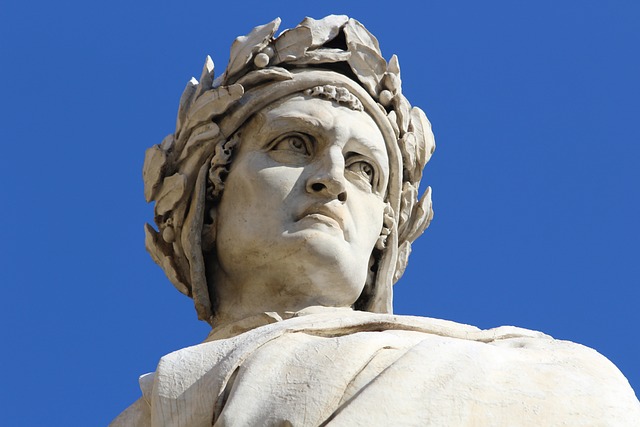Listen&Learn: The Divine Comedy
Posted by: Jaksyn PeacockPre-listening vocabulary
- divine: relating to a god or religion
- comedy: a play or story with a happy ending, especially one that uses humour
- afterlife: the world people go to after they die
- contribution: something important that someone does for a cause or project
- theology: the study of religion and belief
- dialect: a version of a language that is spoken in a specific area
- bold: brave, daring
Listening activity
Podcast: Play in new window | Download (Duration: 1:51 — 1.7MB)
Subscribe: Apple Podcasts | Google Podcasts | RSS | More
Gapfill exercise
Comprehension questions
See answers below
- Dante originally called his work
a. Divina
b. Commedia
c. Tragedia - In the story, the ancient poet Dante receives guidance from is
a. Virgil
b. Homer
c. Ovid - The language Dante wrote the poem in was
a. Latin
b. Greek
c. Italian
Discussion/essay questions
- Is there an author or poet who has made great contributions to your language? Who are they? What are some of their most famous works?
Transcript
The Divine Comedy is an epic poem by Italian writer Dante Alighieri. It was written in the early 1300s, in three books. Dante originally called his work Commedia. He used the word comedy to mean a story with a happy ending. Publishers later added the word “divine” to describe the subject matter. The poem follows a fictionalized version of Dante as he travels through the different parts of the Christian afterlife. Throughout his journey, Dante receives guidance from the ancient Roman poet Virgil, as well as a woman named Beatrice, who is likely inspired by a real woman from Dante’s life. The poem is famous for its contributions to theology, but also to language. During Dante’s time, poets in many parts of Europe wrote exclusively in Latin. Dante’s choice to write The Divine Comedy in his local Tuscan dialect was bold and unusual. His work helped create the standard language spoken by Italians today.
Answers to comprehension questions
1b 2a 3c
Search for more Listen&Learn stories:
Subscribe to EnglishClub Podcasts
3 comments
-
Jorge Berg says:
It’s a great gift to us seeking for learn English.
Thank you very much.
Jorge Berg, 72 old. -
Susana Quant says:
I like to learn English but isn’t easy, I’m 65 old my dreams are learn
-
Nilkanth P. Ingale says:
Good morning Sir\Mam,I like story to improve English language. Thanks for teaching me
